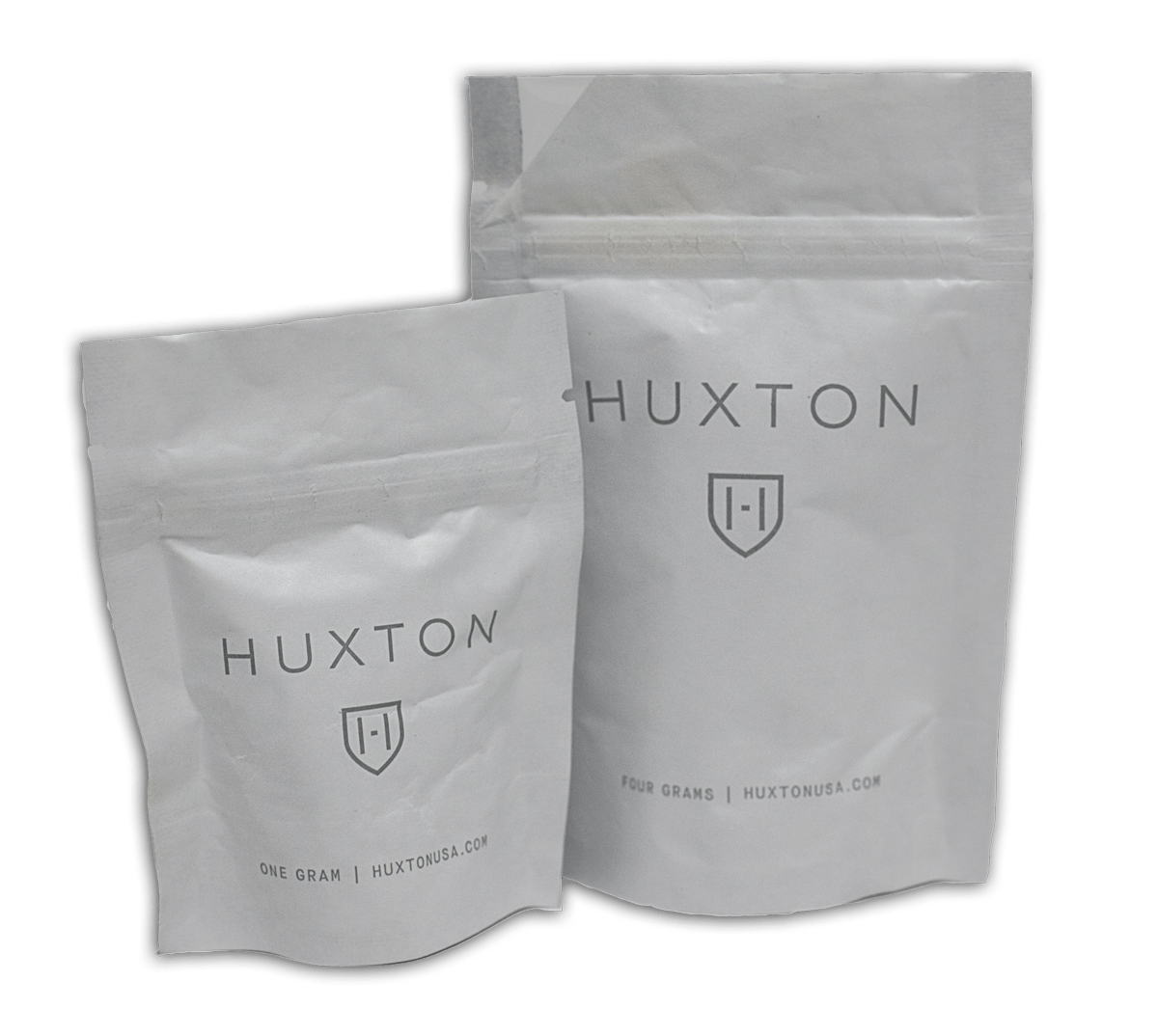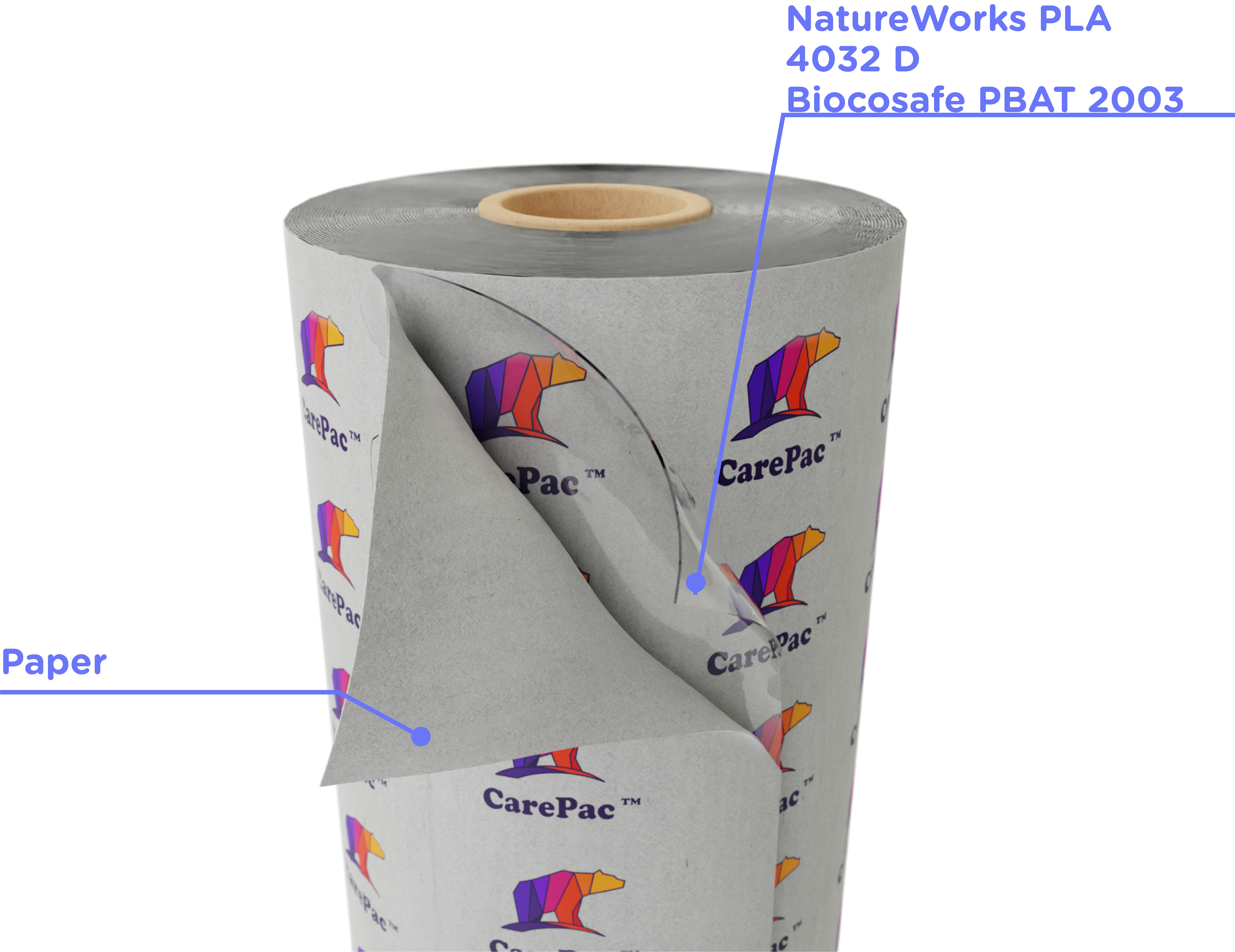No products in the cart.
What is Green Packaging?
Everything You Need to Know
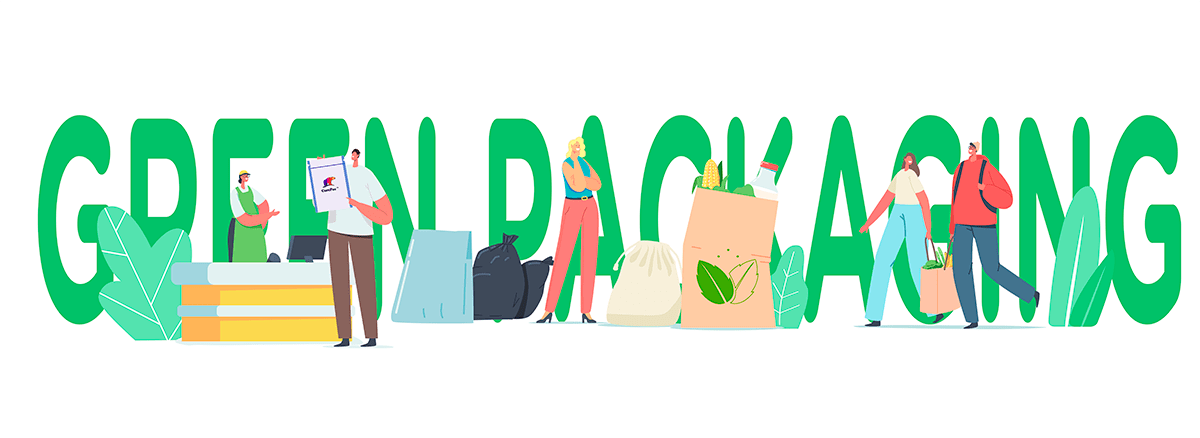

A recent study revealed that 85% of global consumers have changed their buying habits in the past five years to increase their sustainability.
Another study from IBM found that of consumers who said sustainability is important to them, 70% would pay a premium price to support more sustainable and environmentally responsible brands.
Consumers are demanding more sustainability from brands, and they’re willing to invest in products from companies playing their part to help the planet. How can brands keep up with consumer demand and take steps toward going green?
One simple way companies — particularly those in the consumer packaged goods (CPG) sector — can appeal to these consumers and do their part to help the environment is to invest in sustainable packaging material.
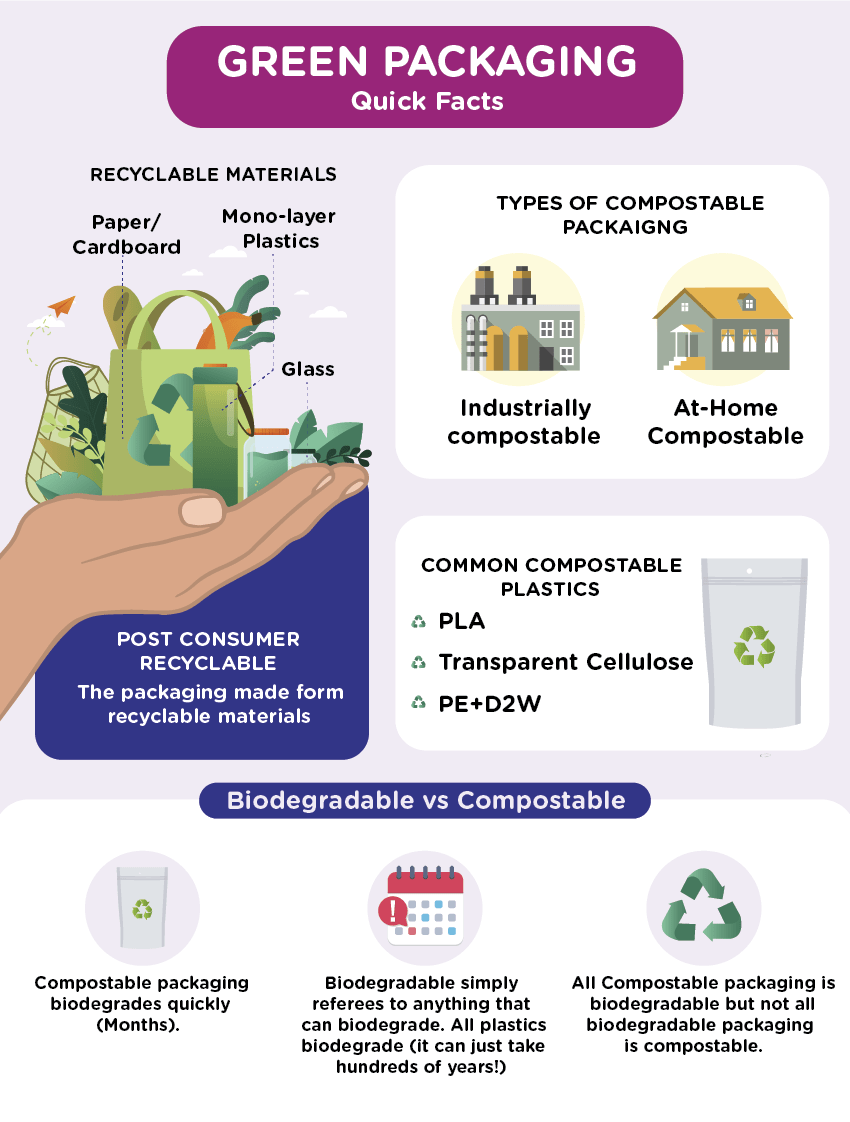

What Is Green Packaging?
The term “green packaging” refers to packaging that is more environmentally friendly than standard options companies may choose for their products.
Other names for green packaging include:
Eco-friendly packaging
Eco packaging
Sustainable packaging
What Packaging Constitutes As "Green Packaging"?
Sustainable packaging options can also be broken into several different categories depending on the materials it’s made from and how it’s disposed of.
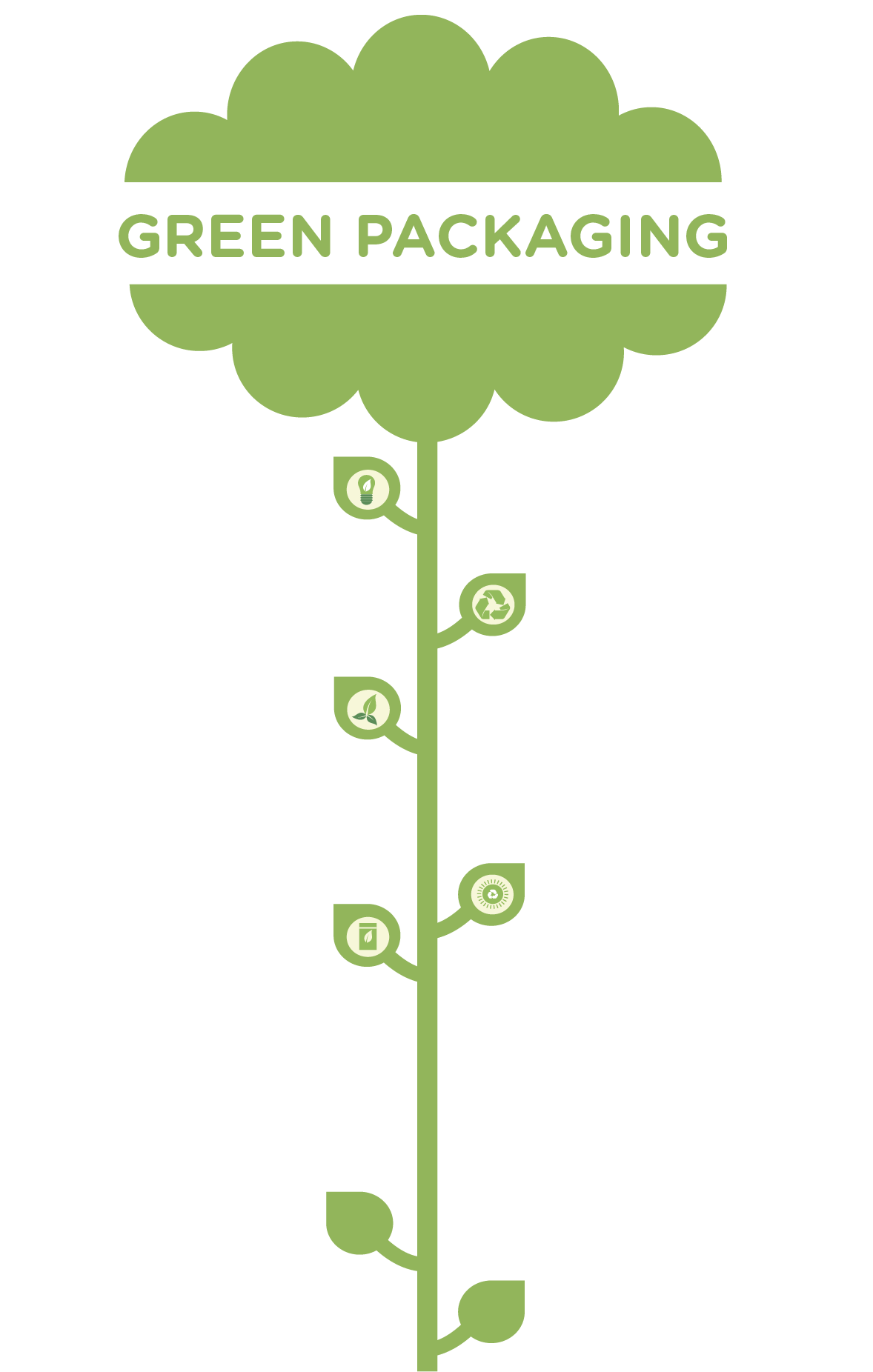

Green packaging can include:
- Recyclable Packaging: This is made from materials that can be recycled at traditional facilities. Recyclable refers to what can be done with the packaging after it's useful life is over.
- Post-Consumer Recycled Packaging: PCR refers to new packaging made from materials that have already been disposed of and recycled and turned into new packaging.
- Biodegradable Packaging: Often made from plant based or bio-plastic materials, this packaging may have microorganisms that help break down the materials.
- Compostable Packaging: Packaging is made from natural plant materials that can return to the earth naturally and help the planet’s systems regrow.
Did You Know? All compostable packaging is biodegradable packaging but not all biodegradable packaging is compostable.
Benefits of Green Packaging
There are many different reasons companies choose to
use eco-friendly packaging for their products.
Traditional Plastic Packaging Can Have Harmful Effects
Plastics also take years to break down. Plastic bags can take 20 years to break down — and coffee pods can take 500, according to the World Wildlife Fund. Even as they break down, plastics aren’t naturally occurring, so they break down into smaller pieces. They can break into tiny particles called microplastics that are anywhere from five millimeters small to microscopic.
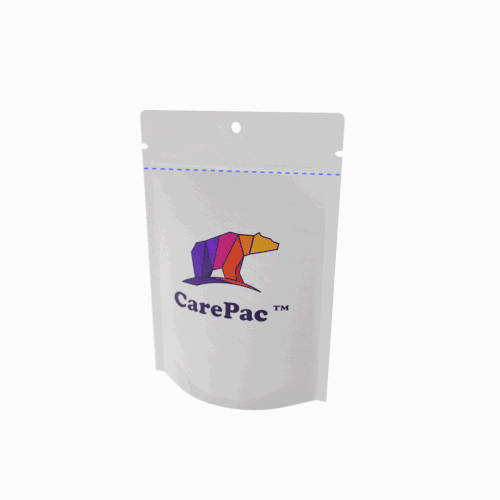
When these plastics get into the environment, their effects can be detrimental. They end up in waterways and oceans, where animals mistakenly or unknowingly ingest them.
These microplastics not only harm the animals themselves but can filter back to humans through the food chain.
Microplastics can also end up in soil and on beaches, where they let off toxic chemicals. This can all filter into crops and human food systems, causing further damage to the ecosystem.
In addition to accounting for large portions of waste in landfills, traditional plastic packaging can harm the environment, plants, animals, and oceans.
Plastics also take years to break down. Plastic bags can take 20 years to break down — and coffee pods can take 500, according to the World Wildlife Fund. Even as they break down, plastics aren’t naturally occurring, so they break down into smaller pieces.
They can break into tiny particles called microplastics that are anywhere from five millimeters small to microscopic.
When these plastics get into the environment, their effects can be detrimental. They end up in waterways and oceans, where animals mistakenly or unknowingly ingest them. These microplastics not only harm the animals themselves but can filter back to humans through the food chain.
Green Packaging Is Better for the Planet
Containers and packaging made up to 82.2 million tons of municipal solid waste in 2018, according to the Environmental Protection Agency (EPA). Plastic containers and packaging alone accounted for an estimated 14.5 million tons of this waste.
Of Polyethylene terephthalate (PET) bottles and jars — the material most plastic products are made from — the agency estimated that only 29.1% was recycled.
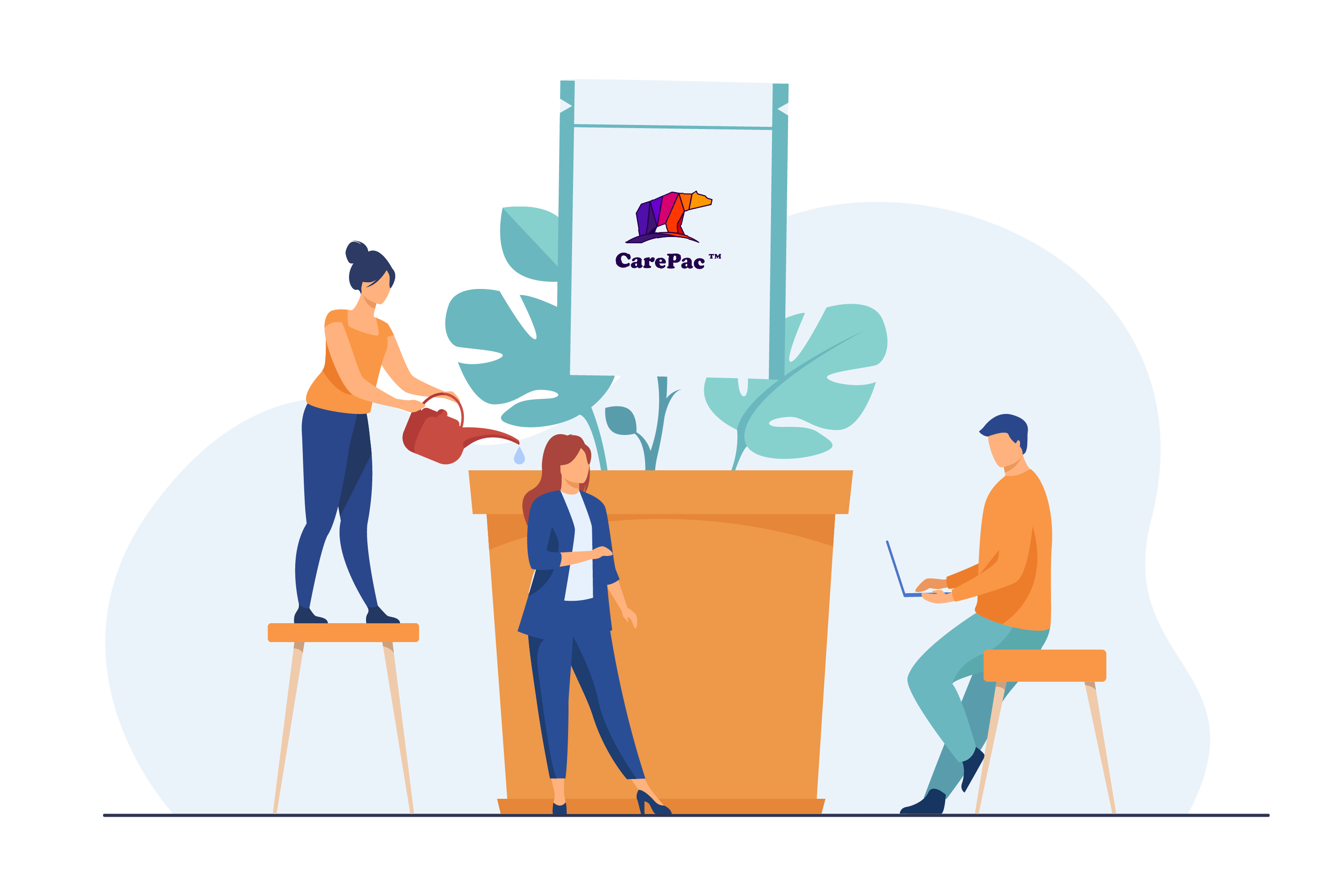

Whether brands use recycled materials in packaging or make the packaging itself recyclable, green packaging lessens environmental impacts to benefit the planet.
When brands choose green packaging, that has a positive impact on the earth, its ecosystems, and overall sustainability.
Consumer Demand
Here are some of the configurations for custom edible packaging we recommend


McKinsey & Company found that more than half of consumers in the U.S. are worried about the impacts of packaging on the environment. These consumers are also interested in both recycled and recyclable options.
When companies supply consumers with green products and packaging and meet their demand for sustainability, that increases customer satisfaction. This is essential for brand loyalty and companies to grow their bottom line.
Eco-Friendly Green Packaging Materials
Recyclable Materials
Packaging made from recyclable materials can be tossed in a bin and recycled at standard facilities.
Some common recyclable packaging materials include:


Glass


Paper/Cardboard


Plastic
However, not all plastics may be recyclable. Some common recyclable plastics include:
High-Density Polyethylene (HDPE)
Polyethylene Terephthalate (PET)
Polypropylene (PP); Not accepted by all recyclers, but an increasing number are
Post-Consumer Recycled Materials: PCR
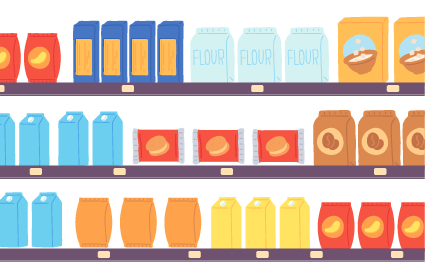

These materials are from other products or packaging that have been used and recycled into new packaging.
This helps keep materials in use rather than going straight to landfills. Often, this packaging can be recycled again and further kept in a circular life cycle rather than being disposed of.
Packaging that’s recyclable or made from post-consumer recycled materials are both great green packaging options for a variety of products — including:
Pasta and dried goods


Nuts and seeds


Powdered products


Candy, chips, and crackers
Sustainable packaging
Sustainable packaging is designed to have a circular life cycle — where it’s kept in constant use rather than heading to the landfill.
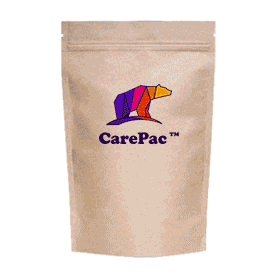

What Is Sustainable Packaging?
Sustainable packaging is made from plant-derived, natural materials and meant to return to the earth’s natural systems to help them regrow. Compostable packaging breaks down and returns to the earth, helping its natural systems flourish — rather than polluting them.
Sustainable packaging may also be referred to as “biodegradable” or “compostable” packaging.
Types of Compostable Packaging
There are multiple kinds of compostable packaging, which may need to be disposed of differently depending on how they’re made and the materials used to make them.
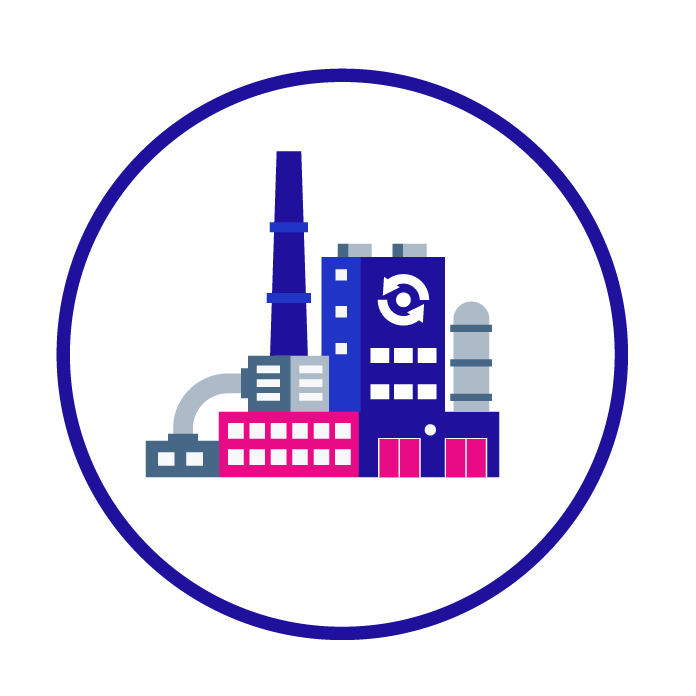

Industrially (commercially) compostable materials
These materials can be composted in an industrial composter.


Ambient (home) compostable materials:
These materials are compostable by consumers at home in any traditional composter.
Industrial composting typically uses biologically produced heat to break down materials at a higher temperature than ambient composting.
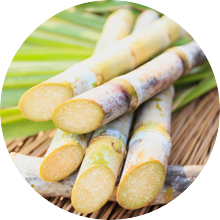

Sugar Cane
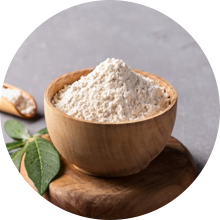

Starch
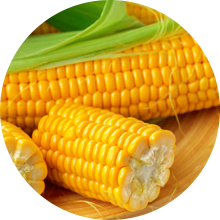

Corn
Other Sustainable Packaging Options
Sustainable, compostable packaging may be made from a variety of plant-based materials, including:


Unlike traditional plastics and other materials, when these materials break down, they don’t release harmful chemicals and toxins into the environment.
Benefits of Sustainable Packaging for Businesses
You may be wondering: “What are the benefits of sustainable packaging for my business?
Does it make a difference?”
Like green packaging, sustainable packaging has numerous benefits — both to the environment and business’ profits.
Sustainable Packaging is Better for the Environment
Businesses make many positive impacts on the planet with products that have a sustainable package.
Lower greenhouse gas emissions
Traditional plastics let off greenhouse gases throughout all stages of product lifecycles. Additionally, it takes far less energy for materials to biodegrade than it does to transport them and incinerate them in landfills and waste facilities.
No toxic chemicals in the environment
Unlike many other product packaging materials, sustainable, compostable packaging should help nurture the planet, rather than letting off harmful chemicals as they break down.
No harmful microplastic pieces
Unlike traditional plastics, sustainable and properly disposed of materials don’t break into microplastic plastic pieces that pollute the earth’s ecosystems and hurt animals.
Sustainability Boosts Companies’ Bottom Line
While it may seem like more of an investment upfront, sustainability can boost companies’ bottom line.
Choosing more eco-friendly ways to run a business and making commitments to being a green company can cut costs, attract and retain better talent, and provide tax incentives.
It can boost brand loyalty — customers pushing for brands to be more sustainable are more likely to reach for green packaging that’s better for the planet. With consumers willing to pay more to support sustainable brands, that’s also a boost to companies’ profits.
Consumer Want for Sustainable Packaging
Spanning all end-use segments, McKinsey & Company found that 60-70% of consumers would be willing to pay more for sustainable packaging. They would buy more sustainably packaged products if they were labeled clearly and readily available.
Even if sustainable packaging is more of an investment up front, a majority of consumers are willing to pay more for products from companies that offer green options.
Sustainable Packaging vs. Eco-Friendly Packaging
If you’re looking to go green with your packaging, you may be debating: “Is sustainable or eco-friendly packaging better for my business?”
It comes down to what you need the packaging for and what’s most important to you in terms of quality and eco-friendliness.
Eco-Friendly, Recyclable Packaging Is Best For:
The most eco-friendly packaging is sustainable packaging, but it may not be suited for all products — like those that need a high barrier or high strength application, pharmaceutical packaging and baby food, or spout patches.
In this case, recyclable packaging is your best bet.
Recyclable Packaging Design
If you’re searching for a great recyclable package option, our 5005 Recycle-Ready and 5006 Recycle-Ready packages are great choices.
The 5005 is made with a biax PE and is Code 4 recycled-ready. While it has a lower barrier than traditional plastic lamination, it has good clarity and can have a matte varnish.
Our 5006, meanwhile, is made with a cross laminate material with a PP base. A Code 5 recycle-ready package, it has a slightly higher barrier and strength than the Code 4 material. It also comes in both matte and gloss options.
To suit all your various product needs, we offer recyclable packaging in:
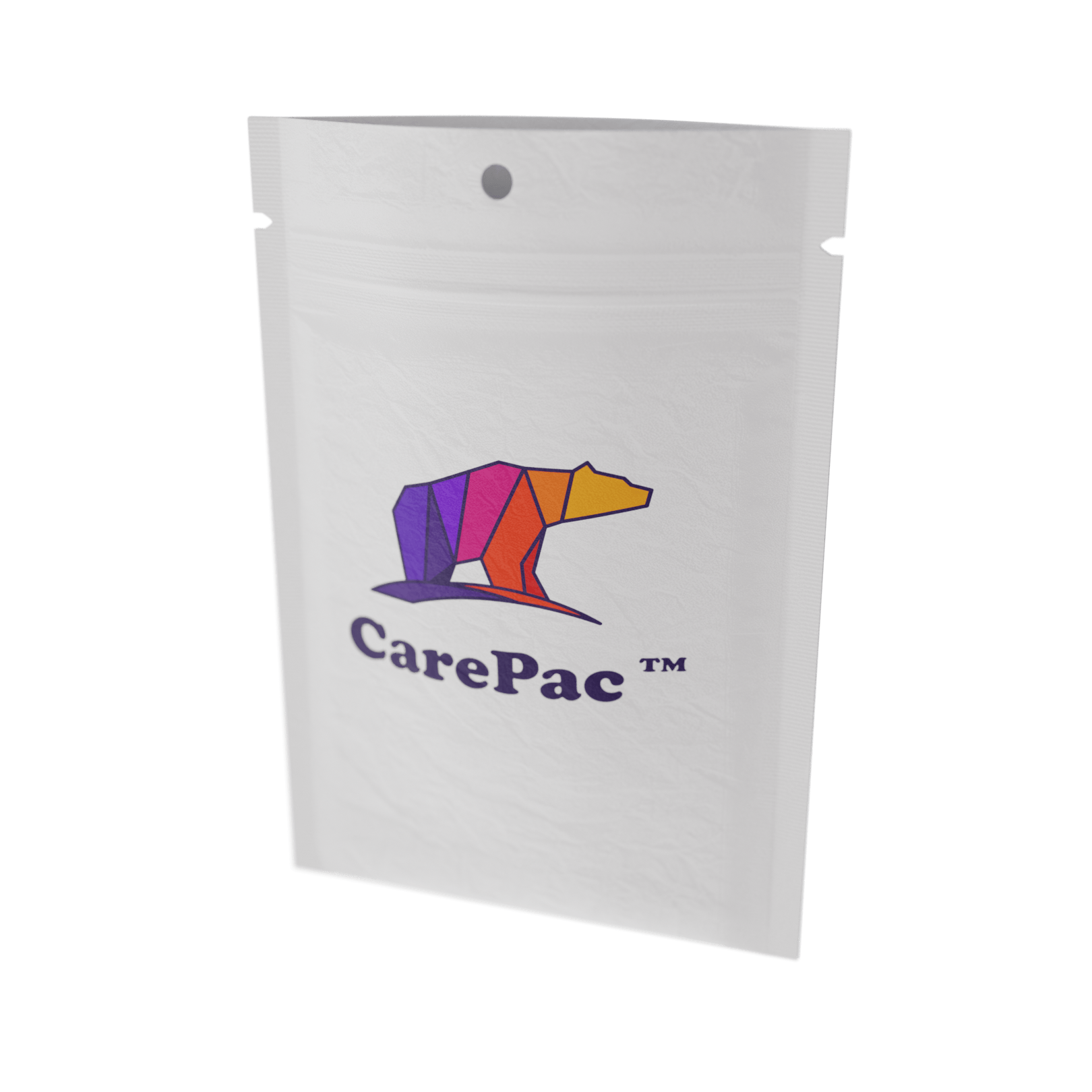

2-Seal Pouch
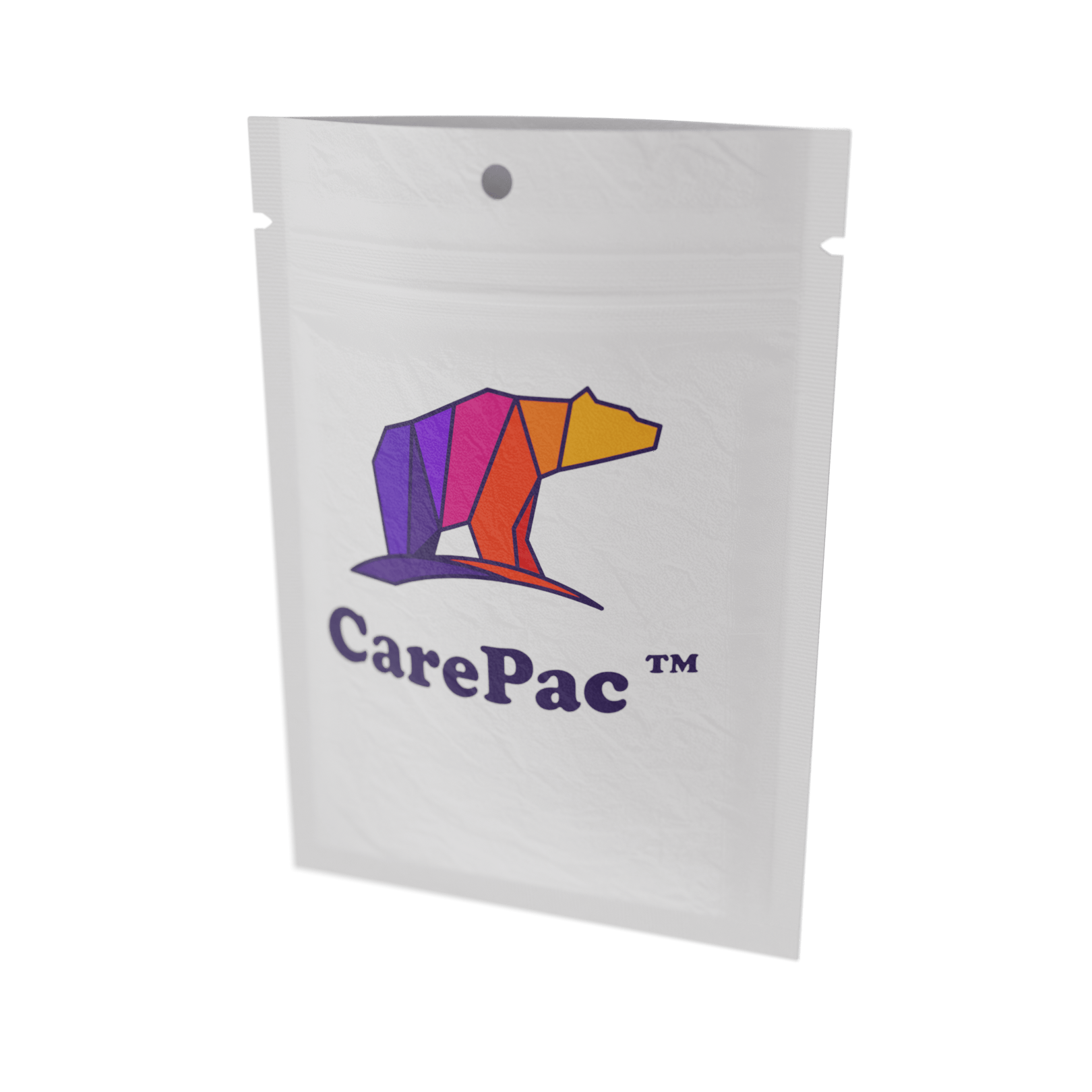

3-Seal Pouch
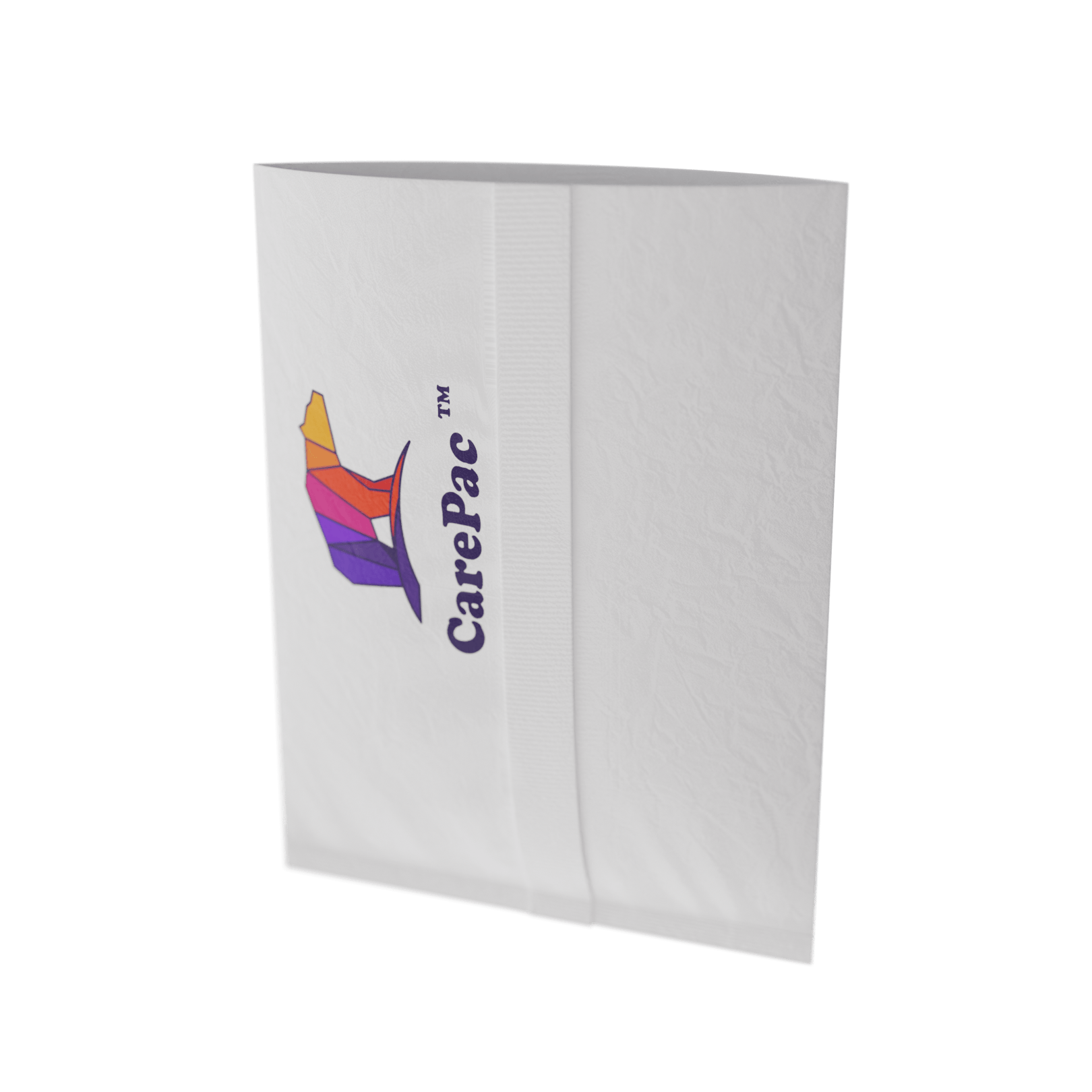

Fin Seal Pouch
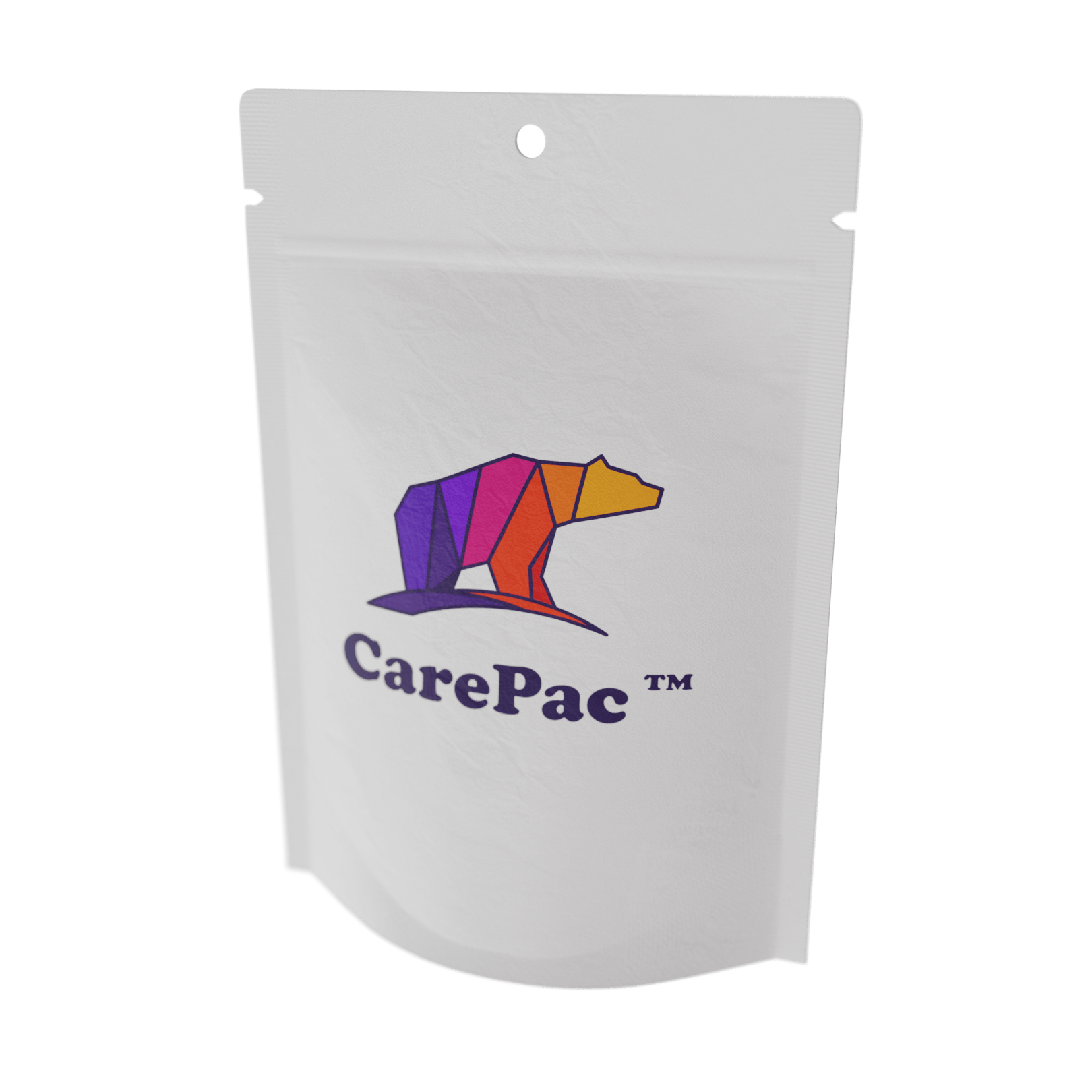

Stand Up Pouch
These options are all recycle-ready and are great for a wide variety of products, from pasta and dried goods to powdered products and seeds.
They’re made with a Metalized PBAT based compostable barrier material.
Plus, you can customize packaging to suit your product and branding needs.
Sustainable Packaging Is Best For:
While not typically as high-barrier as traditional or recyclable packaging options, compostable packaging is made of materials that make it still suitable for shelf stability needs.
Sustainable Packaging Design
There are different kinds of sustainable packaging that may be right for you, depending on what you’re looking to sell:


3-Seal Pouch
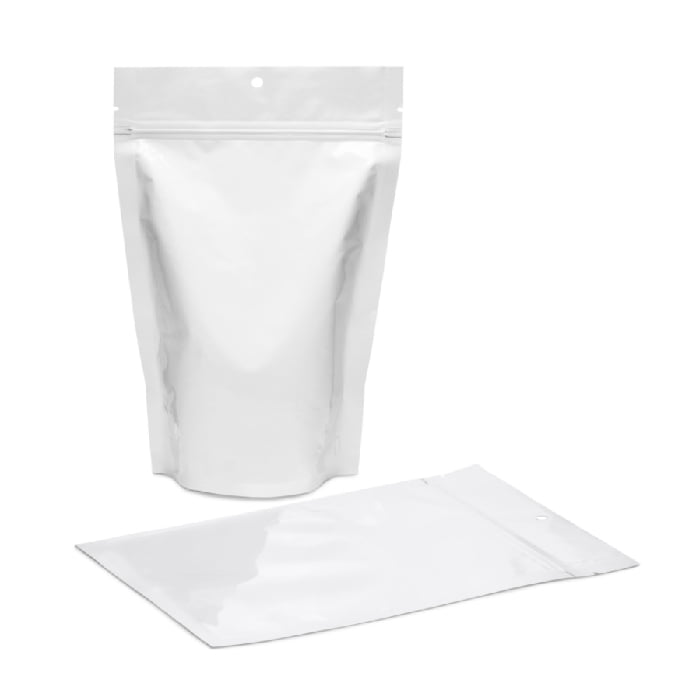

Non Printed Custom


Stand Up Pouch
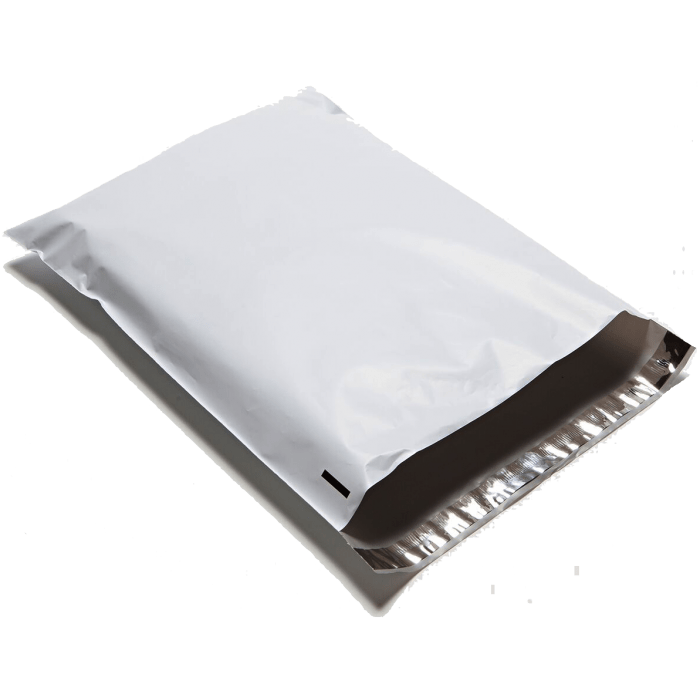

Eco Friendly Poly Mailer
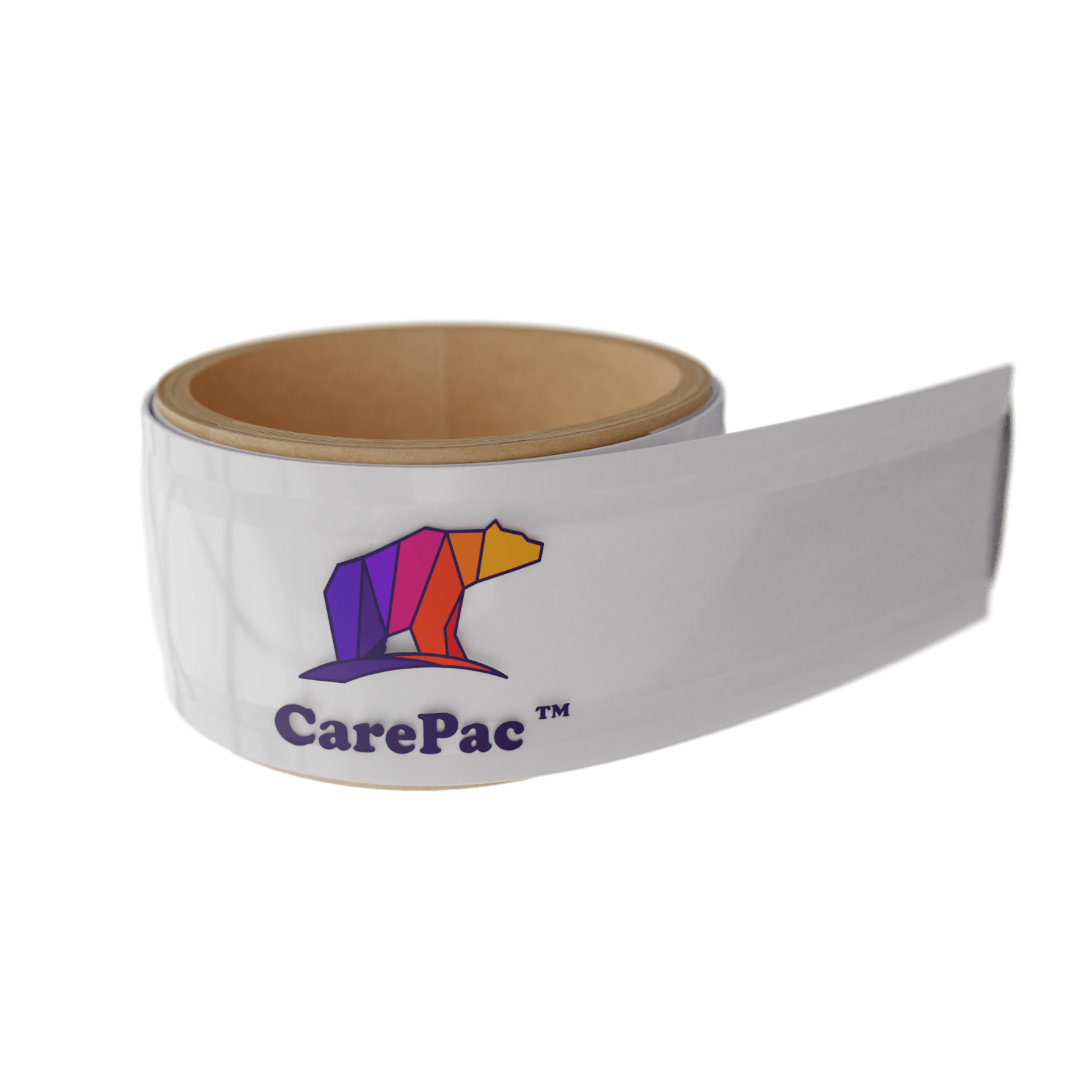

Tubing
Our sustainable packaging comes in three different materials options, depending on your individual needs.
BioPBS (PTT/ Mitsubishi Chemicals):
- Made from sugarcane, cassava, and corn
- Decomposes naturally into biomass, carbon dioxide, and water without specialized composting facilities
- Approved for high-barrier applications up to 100C
CareCompost KP:
- Made with Revode PLA and Kraft Paper
- Great for dry and semi-dry food options
- Provides Barrier Protection
CareCompost NPT:
- Wash Coat, Transparent Cellulose, and Moisture Barrier & Seal Coating
- Made with NatureFlex, which is compostable, heat sealable, and transparent
- Great moisture barrier
Our sustainable materials are suited for either ambient or industrial recycling, depending on the materials.
For example, our CareCompost-KP consists of a paper exterior with a PLA compostable barrier liner. It’s industrial compostable, which means it requires a facility. Our CareCompost-KNMEPS, meanwhile, is made with a metalized ambient compostable, FCN approved PBS material. Because it’s ambient compostable, consumers can compost it right at home.
Is Eco-Friendly Packaging Right for You?

Whether you’re looking to meet consumers’ desire for a more sustainable world, or you’re trying to jump into the circular economy, sustainable packaging is a significant step to take toward a better planet. Consider eco-friendly packaging for your product needs.
Customizable for your branding and products, we offer a range of recyclable and compostable green packaging to help you reach your goals — all without sacrificing the quality and shelf life of your products.
With green packaging solutions, you can reduce your business’ carbon footprint and build customer trust — a win-win for the environment and your brand.
Check out all our green recyclable and compostable packaging options online, or call to find the best packaging to suit your needs.
Tags


